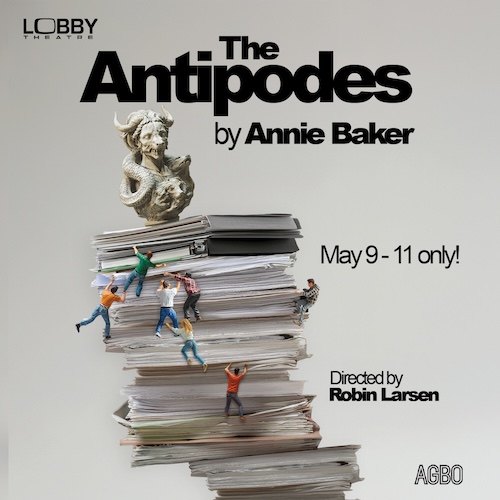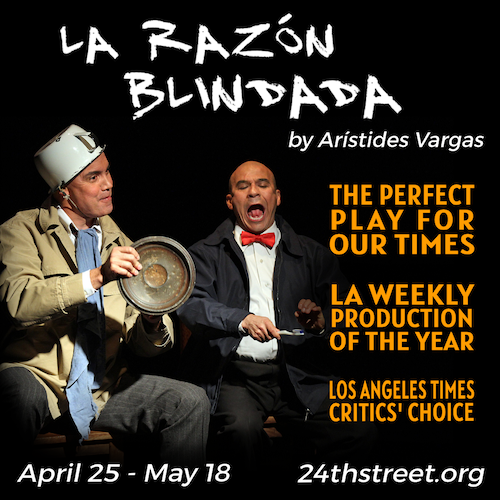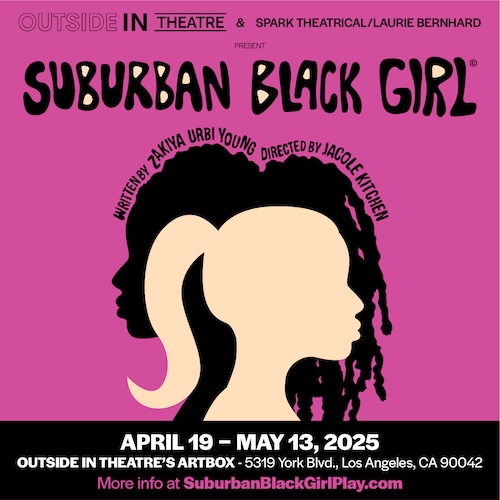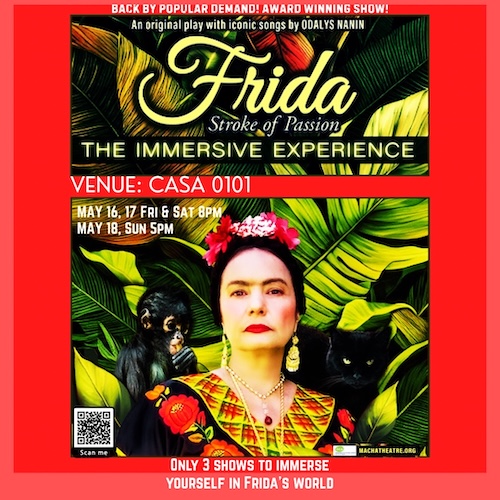Jews, Christians and Screwing Stalin
Reviewed by Iris Mann
Matrix Theatre
Through September 23
Although this work is ostensibly based on events from the youth of co-writer Mark Lonow, virtually nothing about the production rings true. The story, which deals with a Jewish family in Brighton Beach, Brooklyn, may suggest Neil Simon to some, but Jews, Christians and Screwing Stalin features none of the clearly delineated conflicts or razor sharp one-line zingers that he is famous for. And whereas Simon’s characters are eminently relatable, those fashioned by Lonow and his collaborator, wife Jo Anne Astrow, never draw the audience in; instead, they are caricatures whose exaggerated behavior makes no underlying point or statement.
The action is set in 1966, in a rooming house run by Minka Grazonsky (Cathy Ladman), known as Bubby (Yiddish for grandmother). Bubby is a Jewish atheist and communist, with a colorful past as an activist and practitioner of free love during the Soviet Revolution. She is particularly notable for being the sister of the man who signed the death warrant for the Czar of Russia and was the lead gunman of the firing squad that assassinated the Czar and his family. (That part of the storyline parallels Lonow’s lineage as the grandnephew of just such a revolutionary figure.)
Bubby is preparing a Rosh Hashanah dinner for her family and has invited her alcoholic son, David (Travis York), and his estranged progeny, Joseph (Hunter Milano), without telling either that the other is coming.
Joseph arrives and surprises his grandmother by bringing his pregnant fiancée, Caitlin McCarthy-Heitler (Sammi-Jack Martincak). She is a red-headed, Southern, Irish-German Catholic-Presbyterian whose background at first arouses Bubby’s suspicions, but whose levelheadedness ultimately wins her affection.
The rooming house is populated by a group of outsized characters, including busybody Lillie Feinstein (Laura Julian), who has her own history with the family. These characters function as fodder for comic riffs, many of which come off as tasteless rather than comedic, especially those which deal with bodily functions. Also, having David periodically assume a Southern accent may reflect the reality on which this story is based, but in this context, it comes across as contrived and arbitrary.
Playwright Lonow does not fare much better as a director. The ensemble’s over the top style of delivery doesn’t work given the limitations of the material. Much of the shtick falls flat — for example a bit in which Bubby repeatedly primps and preens (even lifting her boobs) before answering the phone just isn’t funny. In addition, Lonow has neglected to insist that the actors maintain their Russian-Yiddish-Brooklyn accents throughout the evening. This is especially true of John Pleshette, an accomplished stage veteran in the role of Bubby’s deceased husband, Murray, who looks on the events and acts as narrator from his vantage point in Paradise. Pleshette glaringly shifts in and out of his dialect, to the point where it detracts from an otherwise amiable performance.
Ladman, too, lets her accent slip, negating whatever comedic moments she achieves, while Martincak leans on hers too heavily, so that her character gives the impression of being a stereotypical southern airhead.
It is Milano who is most successful at making his character believable, likeable, and relatable, perhaps because his Joseph is a reflection of Lonow himself and seems to be written from the inside.
Praise must also be given to Joel Daavid for a set that beautifully evokes the story’s time and place.
In the press notes Lonow is quoted as saying that the play was first conceived as a drama. Since it falls short as a comedy, perhaps the playwrights should take another stab at their original intent.
Matrix Theatre, 7657 Melrose Ave., West Hollywood; Fri. & Mon., 8 p.m.; Sun. 3 p.m.; through Sep. 23. (323) 960-4412 or www.Plays411.com/Matzoballs. Running time: approximately two hours with an intermission.














